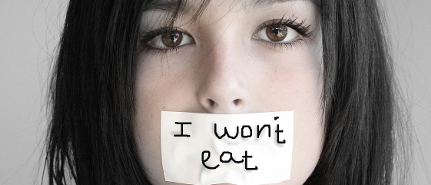Mental Health and the Fitness Industry
Today is Bell Let’s Talk day in Canada, which is a corporate initiative to get people to openly discuss mental health and put resources in front of people who may need it the most.
For every tweet, instagram post, Facebook status, or other social media impression involving the #bellletstalk hashtag they will donate 5 cents to mental health outreach programs and educational resources. For more information, visit their website for information on the company profile, a downloadable tool kit, and ways to help others.
Let’s face it, we all know someone who is fighting a battle that can’t be seen. We all know someone who is fighting self esteem issues, depression/anxiety, suicidal thoughts or tendencies, eating disorders, or other such issues that don’t appear on the surface like a wound, cast, or other outwardly visible symptom. Often these people suffer in silence, feeling like they have no one to turn to or anyone who understands what they’re going through.
The fitness world is no stranger to mental health issues, with some individuals turning to extreme exercise or dieting to try to achieve their goals or feed the dysfunction. Some individuals use exercise as a coping mechanism or self-treatment to help battle their demons, and others might have challenges where exercise is the least of their concerns.
My wife has had to battle these very issues, as she outlined in a blog post HERE. A combination of restricted intake, excessive exercise, and altered thoughts of self-image lead to the development of a pretty significant disorder, which she’s fortunate to have been able to get through and see the other side. A girl I grew up with wasn’t so lucky, passing away at 15 after fighting her own fight for years. I’ve had clients struggle, each and every day to come to terms and find value and reason to keep going on.
I’m no stranger to depression or anxiety either. In times where everything seems to be going well, the darkness can still take over. Winston Churchill called it his “Black Dog,” which seemingly followed him everywhere, occasionally in the shadows and often in plain view.
Family members on both my and my wife’s side have struggled with depression and other issues, so it’s something that’s close to our hearts on a regular basis.
A discerning concept in mental health is an overlying thought by those suffering that they are being judged negatively, never living up to expectations, or not worthy of what they have. While this is a very gross oversimplification, it can highlight not only how important relations are to those suffering, but in developing support and understanding, with clear and comfortable communication between them and those who care about them to help them cope and manage. Some individuals who consider suicide feel that if they were not around, those they cared about would be better off. I’ve never known anyone to cheer at a funeral or say they are happy their good friend passed away.
Simply asking someone “How are you?” and generally caring about what they are going through could be the difference between someone continuing down a lonely road with no beneficial end and feeling like they matter enough to keep going.
The world is so full of negativity, whether it’s in curt personal interactions to world events and violence everywhere you turn. Choose the light and care about someone. It could be enough to make a difference in their lives, and in the lives of those they care about.
Smile at someone randomly
Call a friend or family member you haven’t talked with in a while
Direct message someone to just say hi and connect
Ask a barrista how their day is going
Tell a custodian how much you appreciate their work
We can choose to end the stigma associated with mental health. It shouldn’t be just on one day, but at least it’s a starting point to get it out in general conversation where it can help those who need it the most, and hopefully create more resources to help prevent entirely preventable tragedies.
Show someone they’re not fighting alone.
If you’re struggling, talk to someone. A friend, family member, doctor, therapist, anyone who you can to help you get through this as best as possible, or at the very least manage it better than doing it alone. If you would ever take a car to a mechanic to get it worked on or go to a doctor to check out a sore joint, you should consider talking to a professional about mental health as no different. Get the help if you need it. You are too important to those who care about you to fight alone.


3 Responses to Mental Health and the Fitness Industry